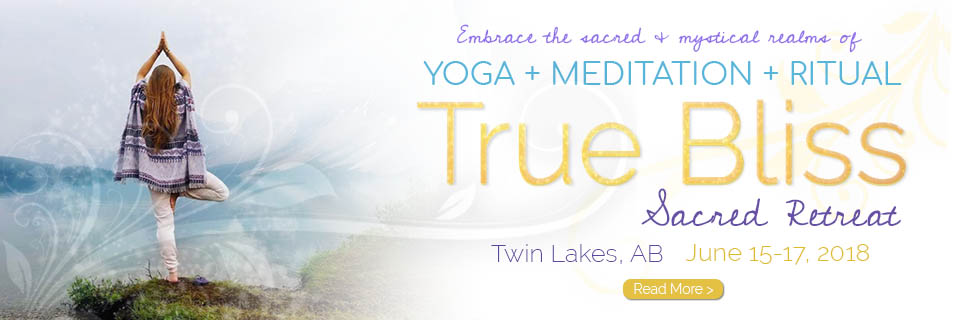Whether you’re new to the realms of yoga studios, spiritual centers and sacred spaces, or an advanced yogi, here are the founding principles of yoga etiquette and tips for your own wisdom (or as a humble reminder,) to create the greatest possible experience in these sacred spaces for yourself, and others!
Based on the Yamas and Niyamas— an ethical and moral code of the yogic tradition, below are some simple principles such as non-violence, truthfulness, non-stealing, preservation of vital energy, non-greed, purity, contentment, self-discipline, self-study and devotion. These ancient principles are an incredible code of etiquette, a source of inspiration, and can act as an inner compass for simple practices to follow in sacred spaces for the greatest good of all!
YAMAS – ETHICAL PRACTICES
1. Non-Violence (Ahimsa):
+ Express kindness, compassion, acceptance and respect to fellow students, teachers and the space in thought, word and deed.
+ Be kind and gentle with yourself during movement and spiritual practices.
+ Think kind thoughts, speak kind words, act from kindness only—Practice tolerance and patience.
2. Truthfulness (Satya):
+ Be honest with yourself and your teacher about the reality of your experience.
+ If you have an injury, recent or past surgery, illness, disease, pregnancy or unique challenge – physical, emotional or mental – be open and honest with your teacher about it.
+ Don’t push yourself beyond your boundaries in an asana or meditation practice.
+ If something doesn’t feel right in your body or mind, don’t be afraid to ask for help.
3. Non-Stealing (Asteya):
+ Avoid taking away the peace of others by being mindful of how your presence— and sounds, scents, sights you invite may affect others in quiet spaces. Enter, set up, practice and be in the space as quietly as possible.
+ Turn your devices on silent so their sound doesn’t take away from the silence.
+ Avoid getting up during the practice and moving around, or leaving class early to prevent disrupting fellow students.
+ Arrive early so you don’t accidentally take the attention of fellow students from their practice or the teacher as you set up— 15-20 minutes before class is great!
+ Avoid pointing your feet at the teacher, altar, shrine, or sacred texts to preserve their energy for everyone to experience.
+ Ensure an appropriate energy exchange— when appropriate pay the studio/teacher for the class, make a donation or offer something in exchange.
4. Preservation of Vital Energy (Brahmacharya):
+ Take responsibility for the energy and attitude that you bring with you into the space and preserve your life force energy for yourself.
+ Let go of any judgments towards the teacher, teaching or fellow students.
+ Conserve your energy for spiritual practices, and be intentional in how you exert your energy.
+ Help others to also contain their energy during spiritual practices by giving your neighbours personal space— spreading your yoga mat or meditation cushion out evenly so everyone has comfortable space.
+ Yoga mats/meditation cushions are someone’s personal sacred space. Avoid stepping or touching people’s mats, props or meditation tools such as dharba mats, meditation beads or meditation slings or cushions without permission.
+ Wear practical, appropriate clothing for the setting your in.
5. Non-Greed (Aparigraha):
+ Take only what is given and using only what is needed in regards to teachers time, props, supplies, tea, water etc.
+ When setting up, consider giving your neighbours on all sides personal space, when possible, stagger your mat/meditation cushion slightly so you everyone has arm room, and everyone has
a view of the altar/teacher/mirror if there is one.
NIYAMAS – INTERNAL MORAL CODE
1. Purity (Saucha):
+ Come to class physically clean and free of any strong scents.
+ Try to wear fresh clean clothes, and it’s very beneficial to shower before all spiritual practices to receive the greatest benefit.
+ Clean up after yourself – don’t leave garbage in the space, wipe up any sweat, and clean/put away any props you used.
+ Please avoid wearing shoes into sacred spaces to preserve the purity of the space.
+ Avoid bringing extra, unnecessary and mundane things into sacred spaces— keys, extra clothes, purses etc. If possible, leave things out of the space, or to the sides to not clutter the area. Bring only what you need.
+ Many wisdom traditions prefer to wear white clothes during spiritual practices as a Sattvic colour, which reflects purity and receptivity of the teachings.
+ If you are sick, better you stay at home for your own comfort, and comfort of others.
2. Contentment (Santosha):
+ Express gratitude to fellow students, teachers and spaces, and connecting which the absolute joy, which is your Natural State.
+ Have an open mind and be present with what is in every moment without judgment or expectation. Trust the process!
3. Self-Discipline (Tapas):
+ Spiritual practices are personal practices. Be disciplined and focused on yourself only.
+ Keeping your eyes on yourself, eyes closed and awareness inside is helpful to focus the mind and preserve your energy inside.
+ Draw your awareness from the external world, to your internal experience. Breathe mindfully. Concentrate. Meditate.
+ Practice mindfulness and moment-to-moment self-awareness.
4. Self-Study (Svadhyaya):
+ Take time in silence and stillness before or after class for self-reflection and self-inquiry.
+ Connect inside to your inner experience of the breath, and the beating heart– and hold space in silence and stillness for others to do the same.
5. Devotion to Divinity (Ishvara Pranidhana):
+ Take time in these spaces to connect within to the Beauty, Light and Paradise of your Heart.
+ Open the practice with chanting the mantra Om— the primordial sound, attuning your individual energy to their Natural State of Love, Peace, and Oneness only.
+ See the good in one another. Practices are often closed with the Sanskrit word Namaste— which means that you witness the Divinity, Love, Light and Wisdom within yourself, which is the same Divinity that exists in All Beings.
Namaste and Om Shanti, Shanti, Shantih! May there be Peace within, in the world, and in all beings everywhere.





